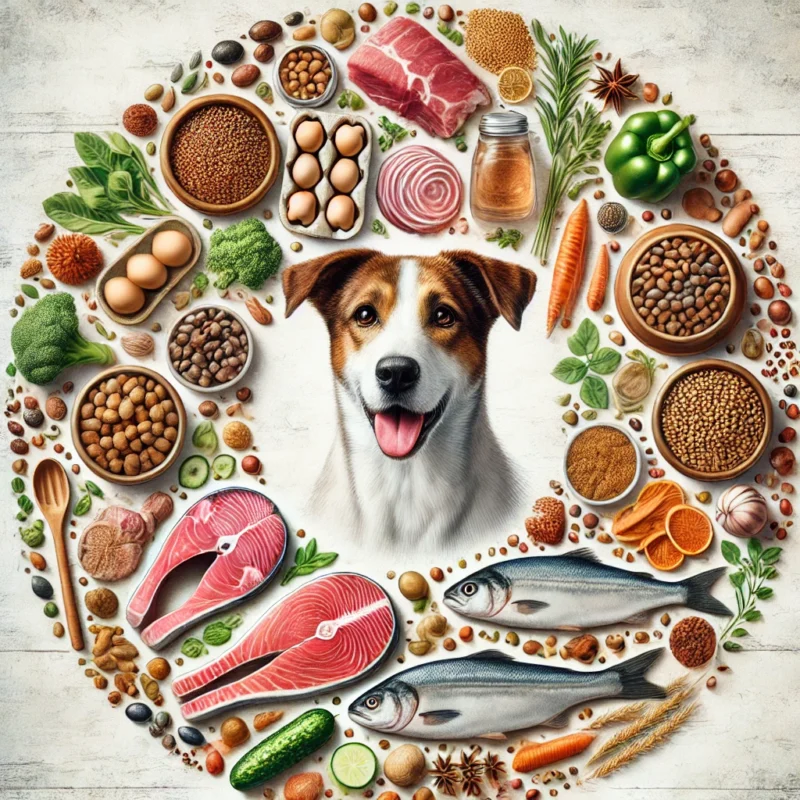Uncategorized
Dog Nutritional Requirements
Dog nutritional requirements are crucial for maintaining your pet’s health and vitality. Understanding these needs ensures that your dog gets the proper nutrients to support their overall well-being.
Balanced Diet for Dogs
A balanced diet is essential for dogs. It includes proteins, fats, carbohydrates, vitamins, and minerals.
- Proteins are vital for muscle development and tissue repair.
- Fats provide energy and support cell growth.
- Carbohydrates supply energy and aid digestion.
- Vitamins and minerals are crucial for metabolic functions and bone health.
Importance of Proteins
Proteins play a significant role in dog nutritional requirements. They are necessary for growth, maintenance, and repair of tissues. Sources of high-quality proteins include:
- Meat
- Poultry
- Fish
- Eggs
Proteins also help in producing enzymes and hormones necessary for daily functions.
Role of Fats
Fats are a concentrated energy source. They support cell structure, aid in the absorption of fat-soluble vitamins, and provide essential fatty acids. Key sources of healthy fats include:
- Fish oil
- Chicken fat
- Flaxseed oil
Carbohydrates for Energy
Carbohydrates are essential for providing energy. They help maintain proper digestive health. Common sources include:
- Rice
- Barley
- Sweet potatoes
Essential Vitamins and Minerals
Vitamins and minerals are indispensable for metabolic and developmental processes. Important vitamins include:
- Vitamin A for vision and immune function.
- Vitamin D for bone health.
- Vitamin E for antioxidant protection.
Minerals like calcium and phosphorus are critical for bone health, while iron and zinc support overall cellular functions.
Water: The Most Crucial Nutrient
Water is often overlooked but is the most critical nutrient. It aids in digestion, nutrient absorption, and temperature regulation. Ensure your dog has access to fresh water at all times.
Specific Nutritional Needs by Life Stage
Dog nutritional requirements vary at different life stages:
- Puppies require higher protein and fat content for growth.
- Adult dogs need a balanced diet to maintain weight and health.
- Senior dogs may need fewer calories and more fiber for digestive health.
Common Nutritional Deficiencies
Nutritional deficiencies can lead to serious health issues. Symptoms of deficiencies include:
- Poor coat condition
- Lethargy
- Weakness
- Digestive problems
Regular vet check-ups can help identify and correct any deficiencies early.
Choosing the Right Dog Food
Selecting the right dog food is vital. Look for products with:
- High-quality protein sources
- Balanced fats
- Whole grains
- Essential vitamins and minerals
Avoid foods with excessive fillers, artificial additives, and low-quality by-products.
Homemade vs. Commercial Dog Food
Homemade dog food allows control over ingredients, ensuring quality and freshness. However, it requires careful planning to meet all nutritional needs. Commercial dog foods are convenient and formulated to provide balanced nutrition.
Reading Dog Food Labels
Understanding dog food labels can help you make better choices. Look for:
- Named animal protein sources (e.g., chicken, beef)
- Healthy fats (e.g., fish oil)
- Limited fillers and by-products
- Added vitamins and minerals
Common Myths About Dog Nutrition
There are many myths about dog nutrition. It’s important to rely on scientific evidence rather than anecdotal advice. For example, grains are not inherently bad for dogs and can be a good source of nutrients.
Monitoring Your Dog’s Health
Regularly monitor your dog’s health and adjust their diet as needed. Signs of good health include:
- Shiny coat
- Healthy weight
- Active behavior
- Regular bowel movements
Consult a Veterinarian
Always consult a veterinarian for personalized dietary recommendations. They can provide guidance based on your dog’s specific health needs and lifestyle.
For more products to keep your furry friends healthy and happy, visit ChimpyTrendy.
References
- Case, L. P., Daristotle, L., Hayek, M. G., & Raasch, M. F. (2011). Canine and feline nutrition: a resource for companion animal professionals. Elsevier Health Sciences.
- Hand, M. S., Thatcher, C. D., Remillard, R. L., Roudebush, P., & Novotny, B. J. (2010). Small animal clinical nutrition. Mark Morris Institute.
- National Research Council. (2006). Nutrient requirements of dogs and cats. National Academies Press.
- Freeman, L. M., Abood, S. K., Fascetti, A. J., Fleeman, L. M., Michel, K. E., Laflamme, D. P., … & Willoughby, K. N. (2006). Energy requirements of dogs: The basis for practical recommendations. The Journal of nutrition.
- Larsen, J. A., & Farcas, A. (2014). Nutrition of aging dogs. Veterinary Clinics: Small Animal Practice.


